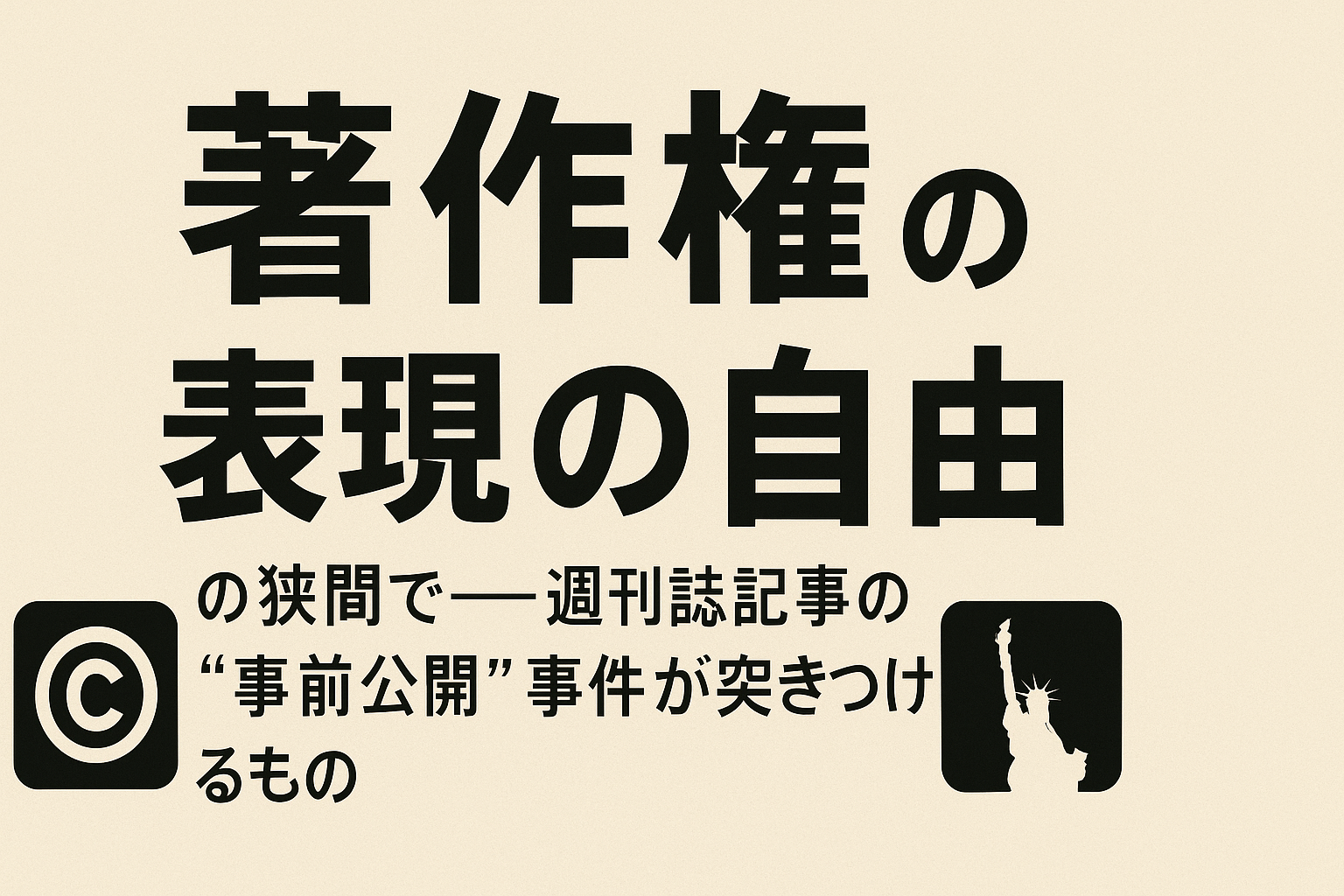In July 2024, the Tokyo District Public Prosecutors Office indicted a 29-year-old man for violating copyright law after he posted a weekly magazine article on social media before its official release. Meanwhile, regarding a related protest using a loudspeaker in front of the publisher’s office—which had led to his arrest on suspicion of forcible obstruction of business—no indictment was filed. This incident highlights important issues surrounding the circulation of information in the digital age, the protection of copyrights, and the boundaries of freedom of expression and protest.
he Fundamental Issue of Pre-Publication Disclosure and Copyright
Posting the contents of a magazine before its release is not merely a matter of breaking news or whistleblowing. Disclosing such content prior to public distribution constitutes a violation of the author’s “right of first publication” under Article 18 of the Copyright Act. This indictment strictly enforces that right and underscores the importance of rules that protect intellectual property.
On the other hand, copyright law must be carefully balanced with freedom of expression. In cases such as whistleblowing for the public good, certain disclosures may be considered justified. However, in this case, no such justification has been presented, which is a noteworthy aspect of the incident.
The Meaning Behind the Non-Indictment of Protest Activities
Although the individual was arrested for allegedly obstructing business by using a loudspeaker to protest in front of the publisher, the prosecutors chose not to indict him. This highlights the delicate boundary between protest as a form of expression and unlawful interference with business operations. The exact reason for the decision remains undisclosed, but it is possible that the extent of actual disruption and the need to respect freedom of expression influenced the outcome.
Copyright and Ethics in the Age of Social Media
This case also illustrates how individuals can be held legally and ethically accountable in a world where social media dominates information dissemination. Amidst the proliferation of “quotes,” “leaks,” and “exposés,” society is being called upon to reaffirm its sense of responsibility in handling information appropriately.
This incident should not be dismissed as merely the illegal actions of an individual who leaked a magazine article. In an age where the flow of information is accelerating, it is essential to revisit the question of how to strike a proper balance between two core values: freedom of expression and the protection of intellectual property.

